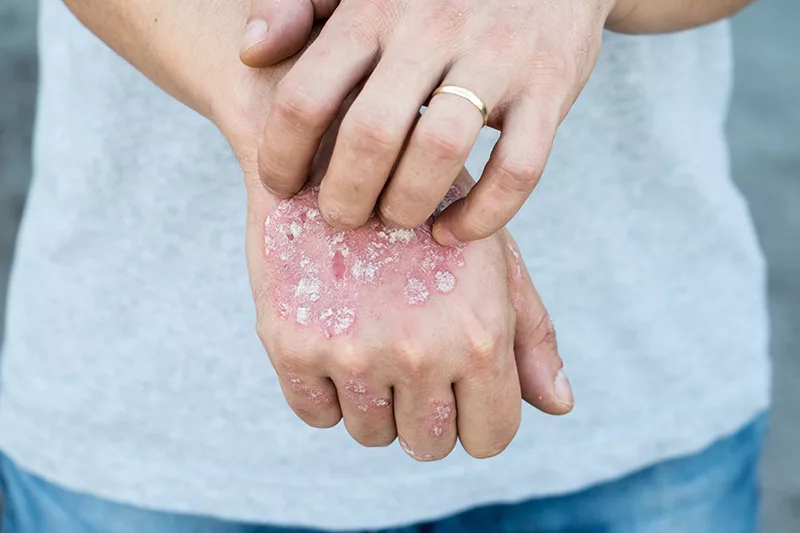
October 29th is World Psoriasis Day, and for the 125 million people around the world living daily with psoriasis and psoriatic arthritis, it’s time to spread awareness and work towards better understanding the life of one living with this chronic autoimmune disease.
What is psoriasis?
Psoriasis is a chronic, inflammatory skin disease characterized by red, scaly patches that may appear anywhere on the body. In this disorder, an overactive immune system causes the skin to produce too many cells. This results in a buildup of cells and the visible plaques characteristic of the disease, often painful or itchy. Some people with the condition develop psoriatic arthritis, which causes pain, stiffness, and swelling in the joints.
Types of psoriasis
Plaque: This is the most common type, causing raised, red patches covered with a silvery-white buildup of dead skin cells.
Guttate: Often triggered by infections, causing small, red spots on the skin.
Inverse: Involves the skin folds, such as the armpits or groin, with red inflamed patches.
Pustular: White pus-filled bumps surrounded by reddened skin.
Erythrodermic: A rare and severe form that causes widespread redness over the body.
Treatment options
While there is no cure, the symptoms of psoriasis can be easily controlled, and the quality of life improved with various treatments.
Topical Treatments: Corticosteroids, vitamin D analogs, and retinoids may be applied directly to the skin to reduce inflammation and scaling.
Phototherapy: The controlled exposure to UVB light can slow the growth of skin cells and reduce the symptoms.
Systemic treatments: Prescription injectable and oral immunomodulators work on the immune system and are usually effective for moderate to severe cases.
Lifestyle modifications: Stress management, proper diet, and avoidance of smoking or excessive alcohol may help alleviate symptoms.
Caring for psoriasis
Supportive care is an integral part of living with psoriasis, including daily moisturizing, management of stress, and collaboration with a health-care provider or dermatologist to change treatment when necessary. World Psoriasis Day reminds us that nobody has to face psoriasis alone.


